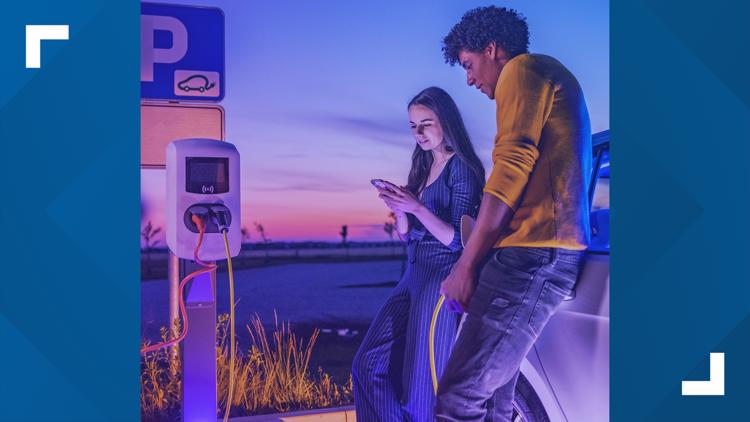BUFFALO, N.Y. — As gas prices remain on the expensive side, a new study from AAA reveals that 25% of Americans say they would be more likely to buy an electric vehicle.
AAA said that 25% comes from a strong urge to save on fuel costs with 77% of people who want to buy electric vehicle citing gas prices.
With rising fuel prices, AAA believes the conversion to electric vehicles will now only continue.
"The increase in gas prices over the last six months has pushed consumers to consider going electric, especially for younger generations," said Greg Brannon, AAA’s director of Automotive Engineering and Industry Relations. "They are looking for ways to save, and automakers continue to incorporate cool styling and the latest cutting-edge technology into electric vehicles, which appeal to this group."
However, as interest in electric vehicles grows, concern for finding charging locations will also.
That's not the only thing holding consumer's back. AAA also found the following reasons on why people are hesitant to switch to electric vehicles:
- Higher purchase price – 60%
- Concern there are not enough places to charge – 60%
- Concern about running out of charge when driving – 58%
- Unsuitable for long-distance travel – 55%
- High cost of battery repair or replacement – 55%
- Unable to install a charging station where they live – 31%
While consumers have worries about how far electric vehicles are able to drive before they run out of charge, AAA found they do have a fairly accurate idea of how far the vehicles can drive. According to its study, AAA found the 60% of Americans think electric vehicles can travel between 100 and 350 miles before running out of charge, which is accurate to current capabilities.
“The deeper issue with range anxiety is that it’s going to take more than just improving how far an electric vehicle can go to convince people to make the switch,” Brannon said.
AAA believes better understanding of the following aspects will help consumers with the idea of getting an electric vehicle:
- Performance: Electric vehicles are more efficient in stop-and-go traffic because the car can recapture energy from braking to charge the battery when decelerating.
- Public vs. Home Charging: A previous AAA survey revealed electric vehicle owners do 75% of their charging at home. Most electric vehicles come with a 120-volt, Level 1 AC charger that plugs into a standard household electrical outlet. Level 1 charging provides between 2 and 5 miles of range per hour, which is adequate for a typical U.S. driver who averages about 30 miles daily.
- Accessibility: Often, public charging is less accessible for people living in dense cities or multi-family housing. In those cases, public charging is the only option. The U.S. Department of Energy data suggests there are nearly 55,674 charging stations throughout the nation. While charging infrastructure has improved, more work will be needed to support greater consumer adoption in the coming years.
- Integration: According to previous AAA research, most owners of electric vehicles (78%) usually have one or more gas-powered or non-plug-in hybrid vehicles in the household in addition to their electric vehicles. Educating consumers on the benefits of using an electric vehicle for shorter commutes while using their gas-powered vehicle for longer trips may go a long way in addressing range anxiety while also highlighting the benefits.
- Roadside Assistance: AAA is synonymous with the automobile, whether electric or gas-powered, which includes servicing those members who own electric vehicles. AAA finds that much like gas-powered, the top reasons for roadside assistance for electric vehicle owners include issues with tires or needing a tow, but rarely for running out of charge.
Although not all these factors may ease consumer anxiety regarding their concerns, AAA expects continued education and people seeing their neighbors convert to electric vehicles will grow their popularity.
More information on electric vehicles is available on the AAA Car Guide website.



